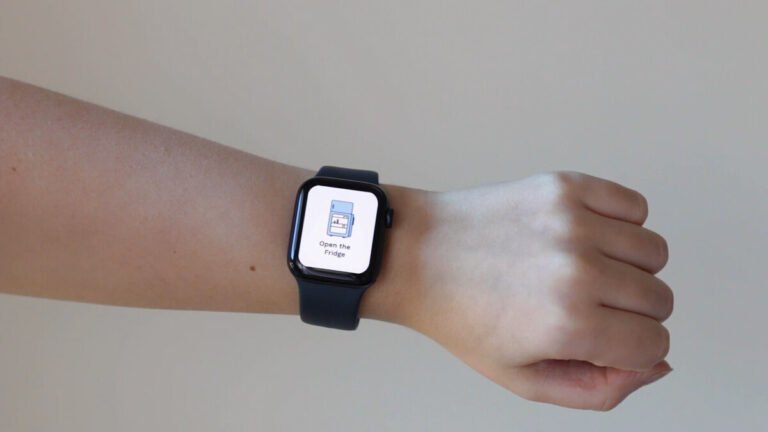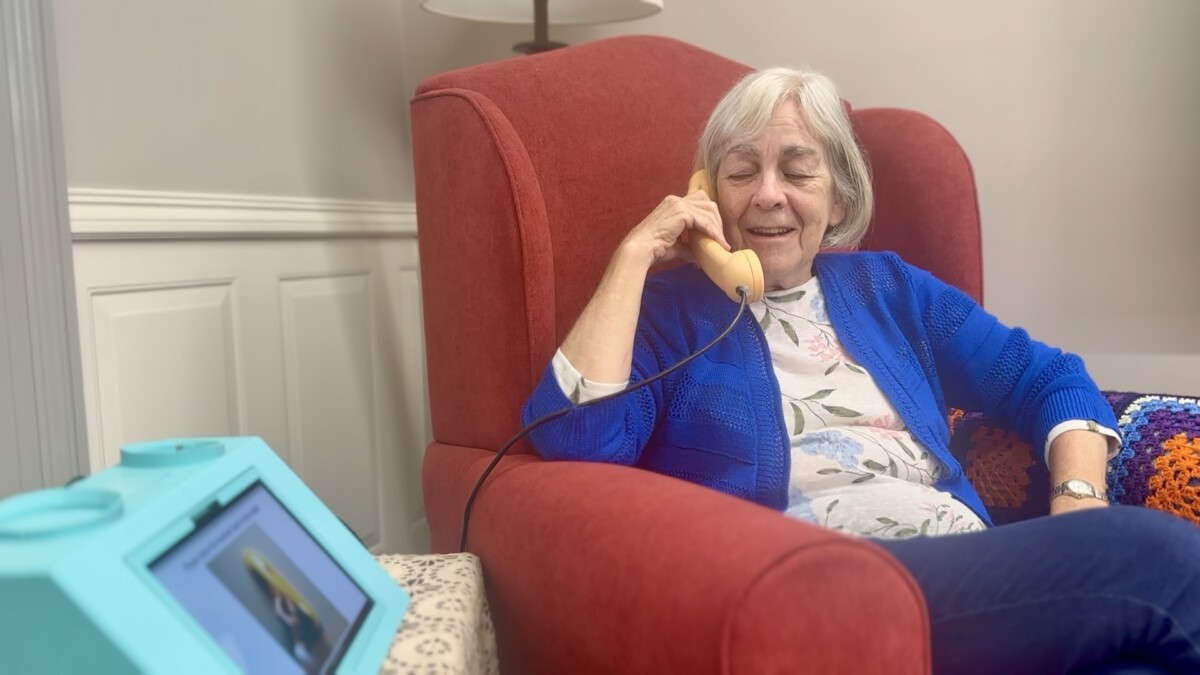Longitude Prize on Dementia awards five finalists £300k each to take projects forward

Glasses to help people with dementia navigate their environment and a smartwatch that learns daily routines are among five technologies awarded £300,000 as finalists in the £4.4mn Longitude Prize on Dementia.
The global challenge prize is focused on the creation of new assistive technologies that use AI to transform how people live with dementia after a diagnosis so that they can maintain their independence for as long as possible. It is funded by Alzheimer’s Society and Innovate UK and delivered by Challenge Works (part of Nesta).
The five finalists, announced last night on BBC One’s The One Show, will each receive £300,000 to develop their technologies in the next 15 months. They are:
Advertisement
- High-tech glasses that help users recognise objects and people and remember what to say or do, supporting them to carry out daily activities independently. The glasses work with existing prescriptions and aim to delay the progression of memory loss and use synaesthesia (CrossSense, Animorph, UK).
- Football pitch sensor technology applied to predict and prevent falls – this tech, worn in the form of a smartwatch, could anticipate slips at certain points in a daily routine or in certain locations by detecting and calculating fall risk (Theora 360, Clairvoyant Networks, Inc, USA).
- A smartwatch-based app to provide guidance on daily routines – this AI software processes data from a smartwatch and sensors around the home to learn about its users’ activities and gently guide them on their routines. If they are not responsive, it will alert a carer. The software will become more intensive as a person’s dementia progresses, helping them to stay in their own home and community for longer (AUTONOMOUS, Associação Fraunhofer Portugal Research,Portugal).
- At-home monitoring-box that protects privacy – this ‘sensor’ box and automated messaging system scans rooms to help remotely inform family members of the loved one’s wellbeing via Whatsapp or text message. This provides reassurance without using cameras or wearables, connecting caregivers without infringing on privacy (Supersense Technologies, UK).
- Home assistance device resembling a traditional telephone – this familiar-looking device offers a screen for video calls which can also display personalised reminders of daily activities. The phone connects users to a voice-recording of their choice that shares prompts on daily activities and displays images of items in that person’s house. It also makes video-calling loved ones as easy as picking up the phone (MemoryAid, The MARCS Institute, Western Sydney University, Australia).

Dr James Brown, CEO of Supersense Technologies said:
“A few years ago, I was volunteering with a charity supporting people who had just received a dementia diagnosis. At almost every house we visited there would be a drawer full of unused gadgets – fall-detection watches or pendants, AI speakers – great tech but clearly not being used by the people it was designed for.
“As an engineer and researcher with a decade of experience in developing sensor technology, I knew that there was far better, unintrusive technology that could help people with dementia or mild cognitive impairment to live safely in their own homes for longer, and to help families know that their loved one is safe and well. Our system is specifically designed to maintain a person’s privacy and autonomy, while identifying new behavioural patterns as soon as they develop, so that loved ones or carers can provide support at the right time, all with the aim of helping people to stay independent in their homes for longer.”
Kate Lee, CEO of Alzheimer’s Society said:
“Currently, around one million people in the UK live with dementia, a figure projected to rise to 1.4 million by 2040. AI presents exciting opportunities to help those with dementia stay active and independent, enabling them to remain in their own homes for as long as possible. By harnessing the power of technology, we can support memory recall and assist individuals in maintaining their daily routines. The five finalists of the Longitude Prize on Dementia are tackling these challenges in innovative and diverse ways. I look forward to seeing how their technologies evolve over the next year.”
In addition to the financial reward, non-financial support has been funded until the end of 2025. This includes access to potential product users, mentorship, and expert advice on technical and business aspects of the innovation to ensure products are scalable. It will also facilitate knowledge sharing between participants. All teams will be working with people with lived experience to ensure solutions are fully co-created.
In early 2026, one winner will receive a prize pot of £1 million, following a judging process with the international Judging Panel and Lived Experience Advisory Panel.



